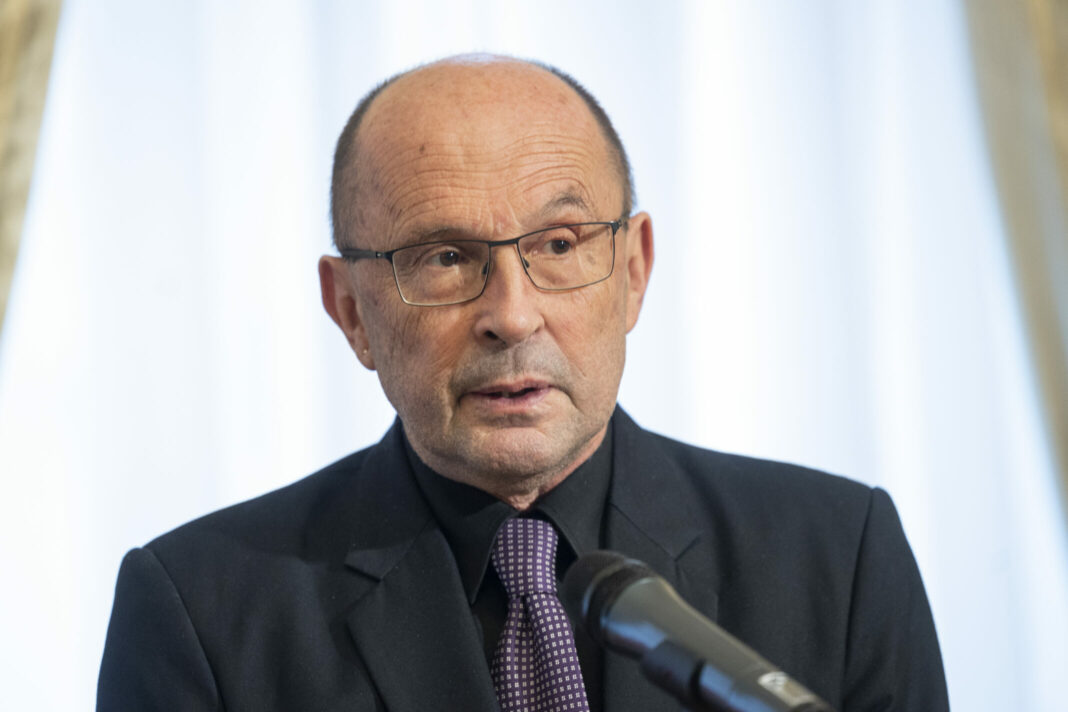By: Dr Jože Dežman
Dear Mrs. Tanja Fajon, Minister of Foreign and European Affairs
Dear Ms. Dr. Dominka Švarc Pipan, Minister of Justice
I hope that the important diplomatic conference for the adoption of the Convention on Cooperation in the Prosecution of Genocide and Other Atrocities, which you are hosting, will be a success.
I believe that it would be right for Slovenia to also present its experience in investigating and prosecuting these worst crimes. The criminological councillor Pavel Jamnik and I have already presented the research on war crimes and crimes against humanity at the conference of European prosecutors in The Hague, I am attaching the report. Then they evaluated our work positively.
I am also attaching a short presentation of the work of the Commission of the Government of the Republic of Slovenia to solve the issue of hidden graves, also in English and Slovenian translation, and I ask you to introduce it to the participants of the conference.
I also suggest that you explain to them the appeal of the Social Democrats, i.e., your party, which is part of the ruling coalition, that you intend to ban the memory of the victims of communism. Are the research, presentation of the crimes of Communism/Titoism, and their commemoration not part of the process of transitional justice, to which the Republic of Slovenia is just as committed as it is to the prosecution of genocide and other crimes?
The second question, which I ask you to explain to the delegates of your important conference, is related to the support of the Government of the Republic of Slovenia to the Mayor of the Municipality of Ljubljana, Zoran Janković. With this, you deny the right of the victims of communism to a grave and memory.
May 17th, the Slovenian Day of Remembrance for the Victims of Communism, is dedicated to the murder of the Roma community in Iška in 1942. They were murdered by the partisan army.
Their remains await burial. The Commission of the Government of the Republic of Slovenia for solving the issue of hidden graves, in accordance with its powers, adopted the decision that they should be given graves at the Žale cemetery in Ljubljana. The commission also decided that the remains of the 3,450 murdered, excavated in the abyss below Macesnova Gorica, should also be buried at the Žale cemetery in Ljubljana. Research at the military cemetery of Slovenian home guards on Orlov vrh has revealed that the communist authorities did not exhume the remains. The commission proposes additional research and arrangement of the military cemetery in accordance with the regulations. The mayor of Municipality of Ljubljana, Zoran Janković, is preventing the implementation of these decisions.
The Commission has repeatedly pointed out this fact to the Government of the Republic of Slovenia. We have not received a reply. We believe that the issues that the Commission addresses both to the Municipality of Ljubljana and the Government of the Republic of Slovenia go beyond the current political relations and interests.
All of the above cases require answers. In accordance with the legal order of the Republic of Slovenia and the fundamental principles of transitional justice, victims of totalitarian terror have the right to a grave and a memorial.
I hope that you will explain to those gathered at the conference why the Government of the Republic of Slovenia acts contrary to the fundamental principles of transitional justice and supports violations of Slovenian legislation.
Looking forward to your favourable reception of these initiatives, I wish you successful work.
Dr Jože Dežman, The President of the Commission of the Government of the Republic of Slovenia for solving the issue of hidden graves

